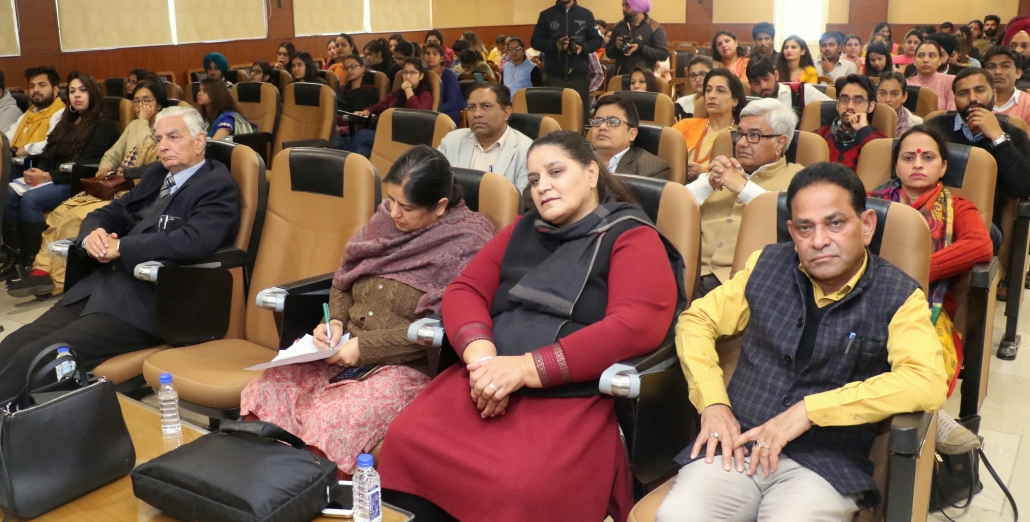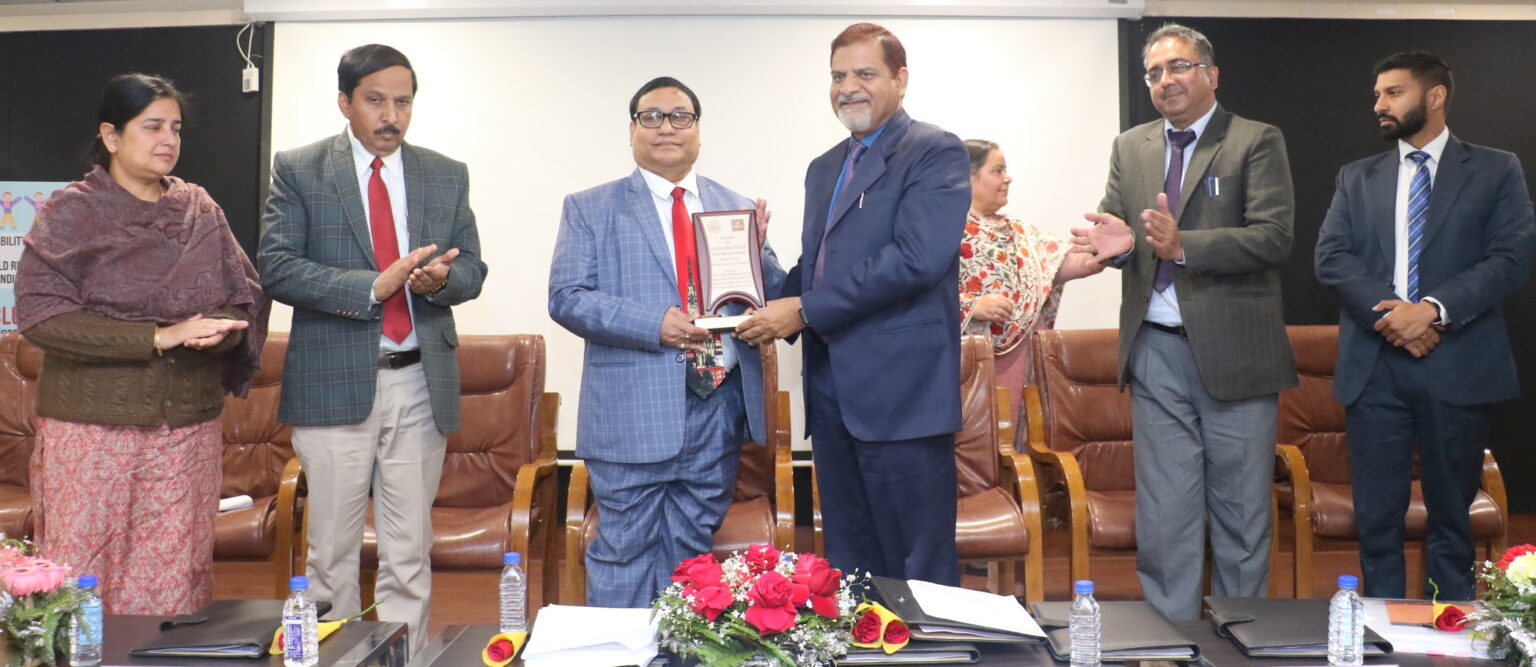
Chandigarh March 7, 2019
Department of Community Education & Disability Studies, Panjab University in collaboration with State Legal Services Authority-SLSA, U.T., Chandigarh, ARUSHI-Bhopal, Chandigarh Commission for Protection of Child Rights-CCPCR & Yuvsatta (youth for peace)-an NGO organized a seminar Gen Next Disability Inclusion, here today.
Hon’ble Mr. Justice A. B. Chaudhari, Judge Punjab & Haryana High Court and Executive Chairman, State Legal Services Authority, Chandigarh in his address said that barriers to increase participation of disable people need to be identified and removed, possibly requiring changes to laws, policies, institutions, and environments. There is also an urgent need to invest in specific programmes and services for people with disabilities. Adopting a national disability strategy and plan of action is another need of the hour. In which the concerned agencies should involve people with disabilities, Improve human resource capacity and most importantly sensitization programmes are required to increase disability related awareness among people working in sectors like education, health care, law enforcement and the media are particularly important for ensuring non-discrimination and participation.

Prof. Raj Kumar, Vice chancellor, PU emphasized on phase-wise development of the University campus to make it accessible and disabled friendly. He also emphasized on optimum utilization of available resources and participation of all. He urged the organizers to implement the inputs of the seminar into an executable work plan.
In his presentation Dr. BS Chavan, Director Principal, Govt. Medical College & Hospital, Sector 32, Chandigarh requested people to come forth and help to make Chandigarh a disable-friendly city in a real sense with adequate infrastructure and society support. Our aim should be to enable differently able people to become self-sufficient and productive. He also shared various pioneering initiatives which their Department took to rehabilitate person with various disability orders.
Sharing about the best practices Abha Negi, Chairperson and Founder of Global Forum for Empowerment, New Delhi shared the infrastructure being developed as barrier-free fails to address the basic needs of not just the disabled persons but also a larger segment of the society including children, the elderly and the women. It also fails to meet the standards of prescribed norms and guidelines. Despite free-flowing knowledge, advanced technology, and customized systems, the absorption of innovative practices in civic infrastructure is hardly visible failing thereby in making a difference to the lives of the disabled persons and the elderly. She added that the process can be rolled out at the level of the local municipal bodies to begin with. And even though it is a difficult task, it is not impossible to bring this transformation, as all it needs is a mindset change, sincere effort and supportive attitude.
Shri Mahavir Singh, Additional District & Sessions Judge and Member Secretary, SLSA shared that there is not a single disable friendly ATM, public park or market, so we have long way to go even in modern cities like Chandigarh.
Sh. Pramod Sharma, Founder
and Coordinator of Yuvsatta said that we have been talking about
diversity and inclusion for a long time, yet I am seeing a shift to a broader
definition that welcomes people with disabilities, among others. Still there
are ample evidence of Stigma and discrimination against differently able
persons combined with a lack of data making
them hard to reach compounds the problem.
Dr. Dazy Zarabi, Chairperson, Department of Community Education &Disability Studies, Panjab University added that for children with disabilities, this does not just mean enrolment into a mainstream school. All facets of the education system must be addressed so that it can equally respond to the diverse needs of all its learners. There is no one-size-fits-all answer. Every School and city needs to formulate its own set of solutions that reach down to the level of individual schools.
The Seminar ended with concluding resolutions that acknowledge inclusive education is a human right, encourage a system-wide approach, promote meaningful data collection to reach the invisible, remember that implementation is what really counts, think of inclusive education not as a challenge, but as an opportunity.
Prominent participants included Bibi Harjinder Kaur, Chairperson, Chandigarh Commission for Protection of Child Rights- CCPCR, Amrinder Sharma, Secretary, SLSA, , Dr. Monica Munjal, Chairperson, Centre for Social Work, Panjab University, Dr. V.Mohan Kumar, Director IAEA, New Delhi, Sh. Anil Mudgal, Founder ARUSHI, Dr. Rohit Trivedi form ARUSHI, Professors from various Departments of Panjab University, Special Educators and Research Scholars.




